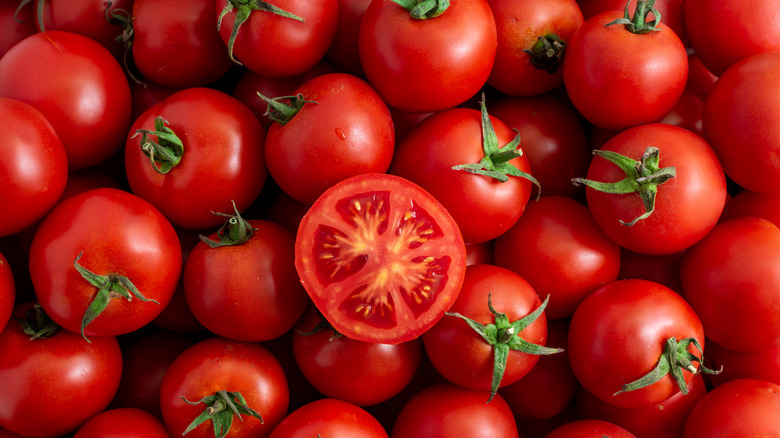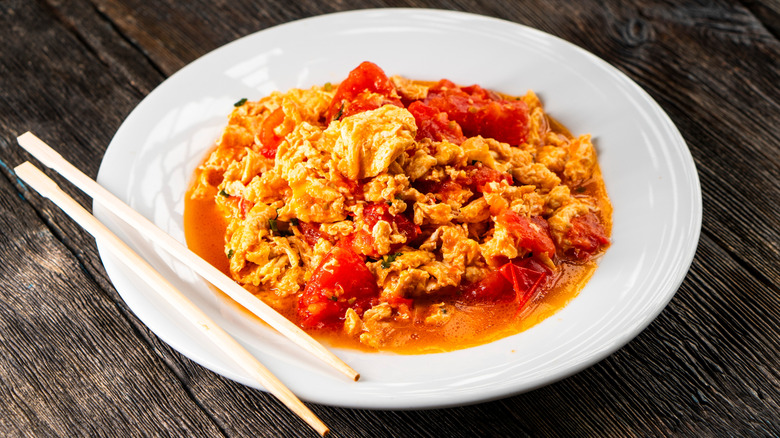This Country Produces The Most Tomatoes In The World
Out of all the countries in the world, which one do you think grows the most tomatoes? When it comes to the top ways that people use them, or which culture's cuisine features them most prominently, you might automatically think of Italy's pasta sauces, America's ketchup bottles, or even delicious salsas from Mexico. Despite where your mind goes when you think about the veggie (or is it a fruit?), one thing you may not have known about tomatoes is that, year after year, China grows more tomatoes than anywhere else, harvesting tens of millions of tons and leaving other major producers like India, Turkey, and the United States far behind.
It's an unexpected fact because China probably isn't the first country people associate with tomatoes; yet the sheer scale of production makes it impossible to ignore the country's dominance. Tomatoes are a staple in Chinese cooking, used in everything from stir-fries to soups, but the story doesn't stop at local plates. A huge share of those tomatoes also gets commercially processed into purees and sauces, so whether you're opening a can of tomato paste for chili or spooning basic tomato sauce onto pasta, there's a real chance those tomatoes started their life in a Chinese field.
Why China dominates tomato production
China's dominance in tomato production isn't just about volume — it's about what happens after the harvest. China exports millions of tons of tomato paste every year, supplying markets in Africa, the Middle East, and Europe. In fact, many fast-food chains, ketchup brands, and frozen meal manufacturers rely heavily on this supply chain, even if the final product is labeled and packaged elsewhere.
Part of the reason China has such a strong hold on this sector is efficiency. Vast farming regions, particularly in Xinjiang, are dedicated almost exclusively to tomatoes, and many farms have mechanized harvesting to keep up with the demand. This scale allows Chinese producers to keep costs low while meeting the needs of both domestic and international markets.
It's also worth noting that while tomatoes feature prominently in many of the most influential international food dishes of all time, not every country can grow them year-round in the same quantities. China's climate and agricultural investment make it uniquely positioned to outproduce rivals. That doesn't mean that other countries' tomato products are of worse quality, but it does show how one country's agricultural system can quietly shape food culture across the globe, even if we're not aware of it.


